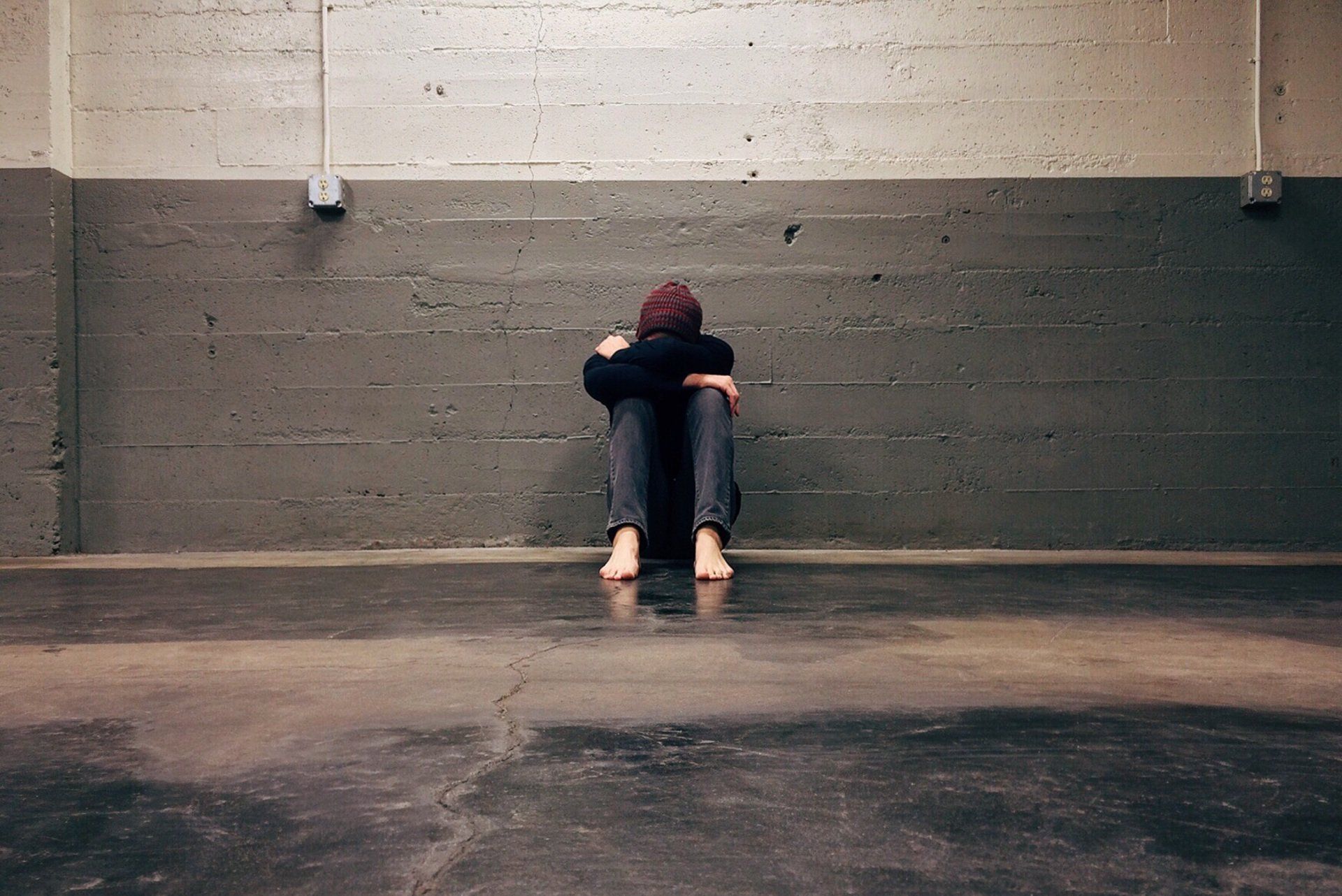The Role Of Youth Sports In Teenage Depression

Youth sports is supposed to help young athletes build confidence in themselves. But as focus shifts from outcome to income, is it doing the opposite?
TW: Suicide, Depression
My father was the head coach of my 5th-8th grade basketball team. While I would adopt a lot of my coaching philosophy from people like John Wooden, Lou Holtz, Karch Kiraly and others, a lot of my foundation as a coach came from those four years playing under my dad.
He let the team decide if the focus would be on winning or playing time (while making sure everyone would play at least a quarter no matter what). There was a big disparity in talent between the starters and non-starters, but he made sure everyone was respected regardless of their role. He challenged us to be our best while never making us feel like wins or losses defined us.
I remember having a conversation with my dad as I began my coaching career. He said something that has stuck with me ever since:
"You guys won a lot, but that wasn't the point. For most kids, youth sports is where they first experience failure. Teaching them how to work through that will ultimately help them in their relationships, education, and career."
25 years later, youth sports looks a lot different than it did back then.
Youth sports is booming financially, but at what cost? A recent study shows
teenage depressed doubled from 2010 to 2019 - and that was before the pandemic.
Social media certainly has its role. Looking at the current state of youth sports, I cannot help but wonder if it's doing more harm than good.
The Good Bad and Ugly of Youth Sports
Nothing prepares you for when a parent calls you to tell you their child tried to take their own life. The pause felt like an eternity before they told me they didn't succeed - and then they asked me to go visit their child that evening in the ward.
I didn't know what to expect when I walked in. When I walked into the community room they were in, their back was to me. When I tapped them on the shoulder, they bounded out of the chair and jumped into my arms. We ended up talking for about 90 minutes that night about a variety of topics, from volleyball, to the challenges of being a teenager in general, to specific things to their situation.
I remember the first time a player told me about their own suicidal attempts years after I had coached them. I had no idea the burden they had carried - on the outside they were a beacon of joy towards myself and everyone on their team, and I would have thought that was one person who
didn't
battle depression.
Those players' stories have had positive outcomes - but it doesn't always work that way. One of my former athletes did take their own life. They were an All-American whose smile is burned into my mind to this day.
It just goes to show you never know what someone's going through. But looking at the above study, it's safe to say that many kids could use a self-esteem boost.
I've never lost sight of the absurdity that my life is spent teaching people how to hit a ball over the net - or prevent it from hitting the ground on their side. But helping athletes see the best in themselves is the real reason I coach. I've always felt it was important that while I want to push my kids to be the best they could be, I would never resort to methods that would make them feel like they were lesser when they fell short of goals.
Parents: If your child had a mental health episode, would their youth sports coach be an ally? Or would they be the cause?
A few years ago, I had a 12 year old that was super sweet and very talented, but there were moments working on skills where would just freeze on the court. The rest of the kids were similar, so we sat in the sand to talk about it. I mentioned how we had been making mistakes, but there was no consequences. We were there to
learn how to be successful, not to just immediately do the skills right. All I was asking was for them to give their best effort - so what held them back from that effort?
They raised their hand and said "Coach, I hear what you're saying. But everyone else I play, when I make a mistake, I get yelled at, punished, or put on the sideline. And the worst part is, they don't tell me how to do it right."
One last story: One of my hardest-working kids was having a rough practice. On the surface, it just seemed like they weren't engaged in the drill. I was nudging them for a better effort, but this day they seemed completely disinterested.
I was confused, so at the water break, I pulled them to the side and asked what was going on. They burst into tears, told me about how their friend took their own life, how they battled depression themselves and how upset they were that their school seemed more interested in sweeping the news under the rug than supporting help to the students.
I immediately shifted my tone/focus for the rest of the practice, they had a better second half of practice, and I checked in on them a few times a day just to see how they were doing. I talked to their father a couple days later and they thanked me for the support.
I think about how many kids go to practice carrying similar burdens. What happens when a coach just chews them out, punishes them, and makes them feel like a failure? Youth sports should be a place kids go to get a recharge from the challenges they face in their lives. But when the environment serves to do the opposite, how much does youth sports
contribute to the mental health woes?
Kids watch as the top teams in their organization get the best coaches and a better education, meanwhile they're left to feel like if they aren't viewed as providing value for their team, they don't get the same opportunities for growth.
What is that teaching our kids?
I recently read a book by Brene Brown where she talks about
belonging vs. fitting in. I immediately thought about the current landscape of youth sports and felt that would be a good measurement of what makes a youth sports program truly successful. How many kids truly felt a sense of belonging in their programs, and how many were fitting in?
Many kids are forced early to abandon sports they love because to play in high school, they're expected to play travel ball (and in some cases, travel sports won't even let their players participate for their high school). In our region, nationals ended last June and within a week, girls were back in the gym with tryout t-shirts for the next season. Many of them have parents that are forced to cut a check to lock in a spot for the next season, but they will not know their teammates or coach until November/December. In some cases they'll be told the team needs them to play a different position than they signed up for. If they do not like the situation that they're put in, they're left with the choice to lose their down payment (often hundreds and sometimes more) or to stick it out.
From 15-18, if athletes play for their high school and compete in a nationals program for club, they will not get an off-season for four straight years. Aside from the
rise in overuse injuries, these kids experience mental burnout. But they don't have a clear alternative if they want to make their high school team and possibly play in college (a carrot that's being dangled to parents by governing bodies, even though
roughly 12 out of 13 high school athletes will not play a varsity sport in college.
It doesn't have to be that way - but as long as
people in power are looking at youth sports as a financial opportunity instead of a chance to build life skills in children (seriously - click that link and read the report outline. Tell me if anything there strikes me as viewing kids and their families as anything other than consumers), things will continue to be challenging.
How Do We Improve Current Conditions?
The challenge we face is, the power lies with parents' checkbooks. As long as they accept the current conditions, organizations have no incentive to change them. I also think parents are in a tough spot, because many governing bodies and 'expert' articles act as borderline propaganda keeping parents looking at youth sports as a return on investment/scholarship opportunity for college. I believe once the 93% of families that won't make it to the next level start realizing that maybe they need something different than the 'norm', programs will have to accommodate that.
There are programs that are leading the charge for change - but we're having to build our audience from the ground up as our ideologies don't align with the bigger bodies in our industry. Many parents think "things have to be this way", but is it true?
My friend runs a true not-for-profit club on the east coast. They're a smaller organization, but they have
3 coaches per team. Don't believe me?
Here's their coaching staff page. Their prices are modest too compared to many clubs. So if an organization can sustain itself when the money truly goes back to the program, why are we accepting of when programs hire high school kids or coaches with no experience?
Our program is beach, but I believe we've created a sweet spot for high-level development, flexibility of scheduling, and equal opportunity for growth from top-to-bottom:
*Four 10-11 week sessions with three one-month pauses allow for athletes to take breaks, play other sports, or invest time into other hobbies. Youth sports should work around your life, not the other way around.
*Cap of 8 kids per court to ensure everyone gets individual attention
*Every group gets the same coaches, same system, and the same opportunity for growth.
*In-house competition to give players game-like experience without having to pay for airfare/hotel/etc. But our college-track athletes do travel for competitive tournaments on their own accord.
I believe many kids
do get a good experience from their organizations - and if they have good coaches and teammates they get along with, that's great. But so many athletes "fit in". They know it's not a great situation, but it's what they have to do to keep up with their peers in their minds. Then when the system doesn't serve them, they feel that there's something wrong with them.
This has been a problem I've been trying to address since I started Progression, and given the recent studies, it's as relevant as ever.
Parents, players, coaches: I challenge you to make sure youth sports environments serve to help kids see the best of themselves/avoid contributing to these statistics. Youth sports done wrong can destroy a kid's self-worth. But by setting a higher bar for what a youth sports program should provide for kids, I truly think it can be one of the best tools to build it up.
For anyone that's interested in joining the cause of making youth sports a better place for kid, you can reach Coach Bryan at Bryan@progressionvolleyball.com










